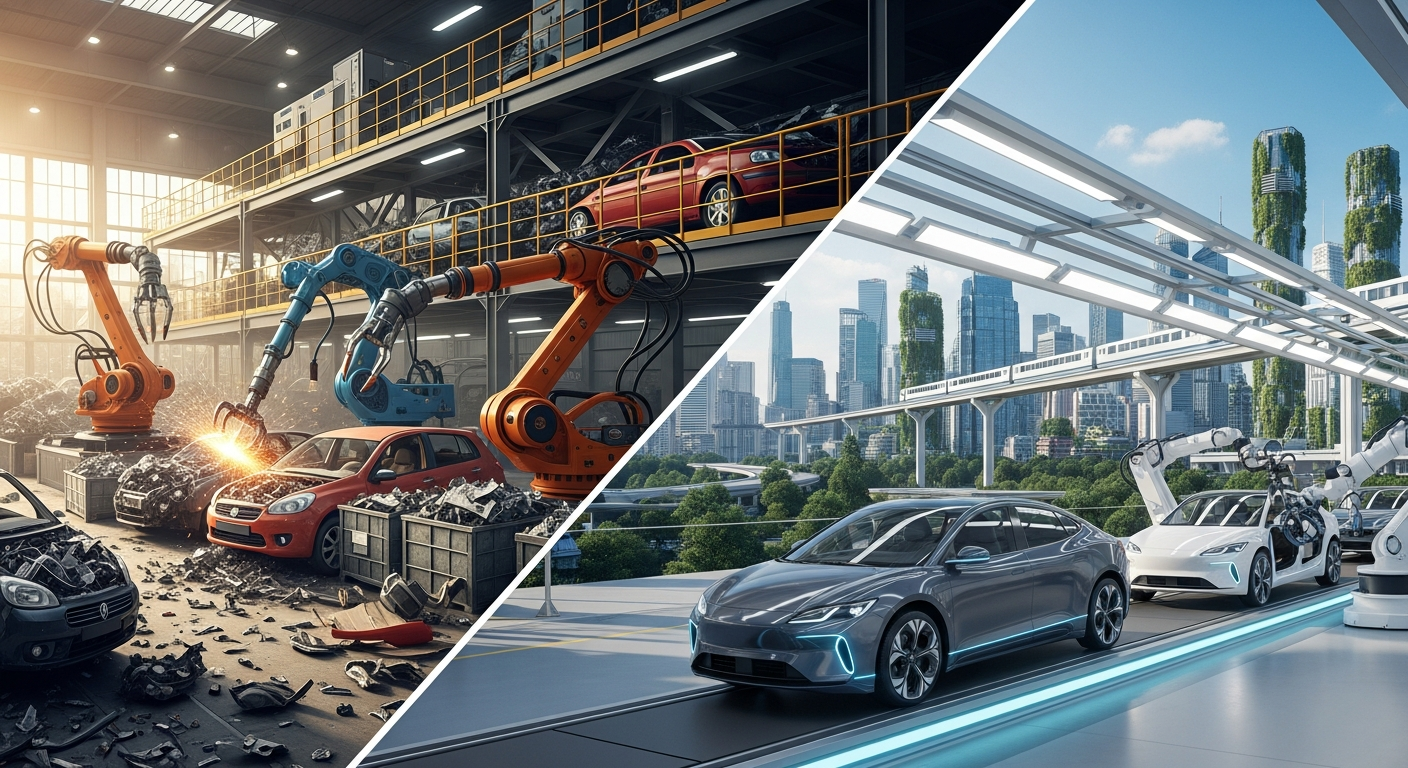
The recent announcement by Nitin Gadkari regarding the immense potential of vehicle scrapping, projecting a significant Rs 40,000 crore GST revenue from nearly a crore vehicles, truly resonates with my long-held perspectives on sustainable economic growth. It's an affirmation of how environmental consciousness can seamlessly intertwine with economic prosperity.
For years, I've advocated for policies that prioritize both our planet and our purse. I remember discussing the necessity of a 'green tax' and incentivizing cleaner transportation, as seen in my past blogs like "Gadkariji Green Tax is Good" and my engagement with Shri Amitabh Kant of NITI Aayog on the "Theory of Special Transportability" to subsidize electric vehicles [http://myblogepage.blogspot.com/2024/09/govt-to-consider-tax-cuts.html]. This current initiative to scrap old, polluting vehicles is a direct step towards phasing out older, less efficient models in favour of modern, more environmentally friendly alternatives. It's a pragmatic approach to cleaning our air and improving our infrastructure simultaneously.
Beyond the environmental benefits, the economic stimulus from this move is substantial. The projected Rs 40,000 crore in GST revenue is a testament to the power of a well-structured tax system. It brings to mind my earlier suggestions on simplifying GST and maximizing its benefits for the economy. I've always believed that a 'Good and Simple Tax' is pivotal for economic growth, as Prime Minister Shri Narendra Modi has often articulated, and Union Finance Minister Smt. Nirmala Sitharaman has diligently worked to achieve with various GST reforms, including recent rate cuts hailed as a 'huge victory' for common citizens and businesses [https://a2ztaxcorp.net/wp-content/uploads/2025/09/WeeklyGSTCommuniqueA2ZTaxcorpLLP22092025.pdf]. The detailed insights from experts like Bimal Jain, whose commentary on GST is comprehensive, further underscore the complexity and critical importance of these ongoing reforms. Similarly, the efforts by Union Agriculture Minister Shri Shivraj Singh Chouhan to reduce GST on agricultural machinery show the broad reach of these reforms in benefiting various sectors [https://a2ztaxcorp.net/wp-content/uploads/2025/09/WeeklyGSTCommuniqueA2ZTaxcorpLLP22092025.pdf]. Union Minister Shri Chirag Paswan's articulation, shared by PM Modi, on how GST reforms enhance 'Ease of Living, Ease of Doing Business and Ease of Investing' also echoes this sentiment perfectly [https://a2ztaxcorp.net/wp-content/uploads/2025/09/WeeklyGSTCommuniqueA2ZTaxcorpLLP22092025.pdf].
Furthermore, the scrapping policy can fuel the 'Make in India' initiative by stimulating demand for new vehicles, especially those adhering to cleaner fuel standards. A thriving automobile sector, bolstered by such policies, naturally leads to job creation. This aligns with my long-standing view on incentivizing employment, a concept I shared in "A GOVT THAT LISTENS !" back in 2014, suggesting that 'The more jobs a company creates, the less Corporate Tax it pays' [http://emailothers.blogspot.com/2015/11/a-govt-that-listens.html]. Ajay Dua, a former Secretary with the Ministry of Industry and Commerce, also pointed out the value of fiscal measures in promoting employment, a perspective I fully endorse. This holistic approach, from environmental cleanup to economic stimulation and job growth, is precisely what a nation needs.
As we move forward, the continuous commitment to refining our tax systems and promoting a circular economy is paramount. The vision for a simple and stable tax system, as expressed by CBIC Chairman Sanjay Kumar Agarwal, will be crucial in ensuring that policies like vehicle scrapping deliver their full potential, paving the way for a more prosperous and sustainable future.
Regards,
Hemen Parekh
Of course, if you wish, you can debate this topic with my Virtual Avatar at : hemenparekh.ai






No comments:
Post a Comment